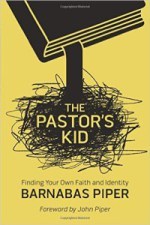Barnabas Piper's Blog, page 86
January 3, 2017
Life is Not Lived Online
I live my life online. So do you, probably. We share everything – every event and crisis and first day of school and pretty plate of food and new place we visit. We are compelled to comment on everything, or at least to like it so the poster knows we are engaged. We share intimate family moments and difficult personal ones. We are authentic in the least vulnerable way possible. The online way.
Because life is not lived online. In fact, online is not a place or a thing. It is real but is an alternate reality. No matter how “real” we seek to be online it is never really life. Because life is lived here and now with people in places thinking thoughts and saying words and doping actions. That is life.
Life is not actually a public affair. It is not for the consumption of others. Yet we seek to shove our lives into the public alternate reality of social media for all to see. We are confused. The term “friend” no longer means friend. We calculate the significance of our moments by likes never considering if we liked the moment. We take the vulnerable moments of grief, pain, struggle, anger, and confusion – moments to be tended with as much care as an infant in the NICU – and expose them to the elements of that other universe, the online one.
We make public what is lived privately and likely ought to stay that way. We feel dishonest or inauthentic for keeping our lives to ourselves. “Lives are meant to be shared,” we think.
No. Lives are meant to be lived to the fullest extent we know how.
The more we take our lives online the more we lose to a reality that is not ours. It is a sacrifice, a giving of ourselves to others who care little for us and are merely consumers. We become prisoners of comparison, constantly comparing our moments to others’ rather than simply appreciating them. We are bound by a weird sense of obligation to engage and respond to others’ moments or thoughts in just the right manner so that we are seen in the tight light – to express our sorrow at their grief or to like their photo quickly after it is posted. We strive for a persona, a “real” persona in an environment that is not reality. We are not being false (at least not most of us) and neither is social media fake – it simply lacks the multi-dimensional richness of life.
Life is lived in conversation and in private. It is the interactions between people in places about ideas or challenges. It is pain that cannot be solved online and pleasure that social media lacks the facets to reflect. It is physical and emotionally complex to the point of confusion. It is spiritually profound beyond words. The Internet cannot hold real life. Instagram cannot capture it. Facebook cannot explain it or argue it into submission. And 140 characters is hardly a glimpse of it. We live life her and now and there tomorrow. Nowhere else.
What is the value of social media, then? Of the dim reflection of reality the online universe reflects? The value is in what it brings to real life. Anything outside that is nothingness and fake. But it does bring value, and how!
Social media creates connections between people – real people – to meet and engage in a context that is real. It allows real people, real friends, to keep up with some of the basic happenings of each other’s lives (not the deep happenings – those are offline engagements) and reminds us of whom we might have forgotten about for too long. It is a means for discovering ideas and discovering who is saying what about what ideas, and those ideas and influencers are things that we can take with us into life. It provides humor and entertainment which might provide a necessary escape from life or may improve our spirits in it.
Any way that the online universe enhances real life is a good thing. Any way that it robs us of life or robs life of us is a detriment. Because life is not lived online. Life is lived here and now. And there tomorrow.
NEW HAPPY RANT: Pastor’s Kids & Christmas and “Seriously, 2016?”
In the first episode of what promises (we hope) to be a better year than last Ted, Ronnie, and Barnabas discuss the following:
Trips to Israel
Jon Acuff’s Tweet about Pastors’ Kids leaving the faith because of too many Christmas services
2016 and people’s overwrought reactions to it
Various and sundry other wanderings
Thanks to our sponsor, Logos 7, newly released in late 2016. If you are a pastor, teacher, or student check out this Bible Study resource software.
As usual we are immensely grateful to Resonate Recordings for doing all our mastering and editing. They make three audio hacks listenable. If you are looking for podcasting services head to ResonateRecordings.com and see what they offer.
To listen you can:
Subscribe in iTunes.
Listen on Stitcher.
Leave us a rating in iTunes (it only takes 1 click and it really helps us).
Listen using the player below.
Episode #120
December 27, 2016
NEW HAPPY RANT: The Top 10 Things of 2016
This is our final podcast of 2016, so we will end it the way every savvy blogger or online platform builder ends their year – with a top 10 list designed to impress you, the listener, with our impressive observations and accomplishments.
OR we will list things we kind of enjoyed.
Enjoy.
As always, this episode is brought to you by Resonate Recordings. Mark and Jake do a phenomenal job with a whole range of audio services and have saved our bacon more than once (like this week). Check them out at ResonateRecordings.com.
To listen you can:
Subscribe in iTunes.
Listen on Stitcher.
Leave us a rating in iTunes (it only takes 1 click and it really helps us).
Listen using the player below.
Episode #119
December 20, 2016
NEW HAPPY RANT: Kanye & Trump, RHE and Tim Keller, and the Worst Christmas Carols ever
In this episode of The Happy Rant Ted, Ronnie, and Barnabas tackle the pressings of the pressing topics for your listening pleasure, information, and edification. Or something like that.
Asking celebrity pastors for money
Kanye and Trump: a match made in heaven, or the other place
RHE trolling Tim Keller on Twitter – or did she *really* not understand him?
Our least favorite Christmas carols
As always, this episode is brought to you by Resonate Recordings. Mark and Jake do a phenomenal job with a whole range of audio services and have saved our bacon more than once (like this week). Check them out at ResonateRecordings.com.
To listen you can:
Subscribe in iTunes.
Listen on Stitcher.
Leave us a rating in iTunes (it only takes 1 click and it really helps us).
Listen using the player below.
Episode #118
December 14, 2016
Dear Future Pastor – A Letter from A PK
Dear Future Pastor,
You are called, or at least you’re pretty sure you are. That’s why you are heading into the great unknown called “vocational ministry.” I understand that. I believe that. I believe God lays it on people’s hearts in an undeniable way to serve His church as pastors.
But you must know that this calling makes life difficult for your family, your children. While you feel the tractor beam of the pulpit they don’t. Your kids aren’t called to ministry, and they don’t want to challenge your calling either because that would mean challenging God. Neither, though, do they always like being the children of a minister. It can be difficult, but are they free to say so? Your calling casts a long and intimidating shadow, even if you don’t.
You may think the challenges of being a pastor’s kid (PK) are overstated. As one who spent my entire childhood, my college years, and my young professional and married life as a PK I assure you they are not. You may be inclined to think you know what the challenges will be, but I suspect some are subtle enough as to have escaped your notice.
The scrutiny, for example, is a subtle thing. Most people in your church will have good intentions and will be predisposed to like you and your family. All that liking means a whole lot of noticing, though. Parishioners will notice everything about your kids – bad habits, misbehaving in the supermarket, flirting, talking during service or Sunday school, running a stop sign, seeing an R rated movie, Who they’re dating, who they just broke up with, and so forth. Of course you’ll unwittingly encourage this by telling stories about your kids in your sermon too. No matter how kind people are, all that noticing piles on the pressure. It leaves no room for mistakes and erodes their sense of freedom.
You are likely prepared for the double standard you will face as a pastor, the expectation to be morally flawless. Did you realize your kids will face the same? They will be expected to behave better, to believe better, to profess better, to lead better, to set an example. People will overlook the fact that by nature they’re just like every other kid, and will expect something a tick more angelic. This is annoying at best, but it can have a devastating effect on your kids’ identities and souls.
Will they define themselves by others’ expectations? Will they base their worth on an extra-biblical moral standard? Will they be people pleasers or rebel against the expectations? Or might they hide their true selves, their questions, their fears, and their doubts behind a faux moral façade just to survive all the while not being sure what they actually believe. Will you be able to tell?
Teaching is what you do. Each Sunday you will stand in front of a congregation and, if you’re doing your job well, expound upon God’s word, His character, and His gospel. You will lead your family in devotions and have theological conversations. You will fill your kids with biblical truth as much as you can. The foundation of their faith will be laid and they will have a storage shed full of building blocks for belief. But will they know how to believe?
One of your greatest challenges will be discerning which answers your children give you are merely the “right” ones and which ones are truly windows to their souls. You will try to determine what they believe versus what they know they ought to believe. And the hard part is they often won’t know the difference themselves. PKs are adept at giving the right answers and then giving the right answers to the follow-up questions. But answers and belief aren’t the same thing. One is mental assent or mere mimicry. The other is a life changed from the inside out.
The scrutiny, the expectations, the double standards, and the lack of clarity about belief can create a witches brew of doubts and confusion. But to whom can PKs take their questions. Where is it safe? If they are expected to be “just so”, to have the answers, and to be more mature believers than their peers then doubts and questions aren’t ok. The church, where they ought to feel safest, becomes off limits. Even your job security will rest on their behavior and profession of faith. What are they to do? Will they view you as safe to confide in or will doing so be an assault on your calling?
Your children will need you to be their parent before you are their pastor. Talk with them; don’t preach at them. Listen to them as a confidant not a professional counselor. When you can, protect them from the double standards heaped upon them. Your standing for them will be Supermanesque. While you won’t always be able to protect them in public, be sure to make your home a haven of grace and consistency where you admit your faults and ask forgiveness so they know they can do the same. And have fun with them. All your lessons will pale in comparison to baseball, Barbies, Legos, fishing, biking, drawing, or hiking. Enter into the hobbies they love and have a hobby you can fold them into so they feel part of your life. (Reading doesn’t count; it’s not a group activity.)
Be patient with your kids. They are kids, after all, just like all the other little delightful knuckleheads out there. They will hear you. They will know what you believe and what you stand for. They will absorb what you say, even if it doesn’t show. Be patient and be present. Many PKs bloom late because it takes time to sort through the pressures and expectations to find their own identity and faith. They need your love, grace, and prayers along the way. And they need to know that you don’t care what expectations anyone else has for them. All you want is for them to live a life that pleases Jesus.
For more on serving pastors’ kids well and the challenges they face check out my book The Pastor’s Kid: Finding Your Own Faith and Identity. If this blog is all the reading you can handle you can get the audio book with I read instead. I’m no Morgan Freeman, but it’s not too bad.
December 12, 2016
New Happy Rant: Christmas Parades, ED Medications, and Online Personas
In this episode of The Happy Rant podcast Barnabas, Ted, and Ronnie do the usual: tackle pressing, urgent, annoying, amusing, and timely topics.
Christmas parades – predictably Barnabas despises them, but what about Ronnie, the Christmas Elf?
The awkwardness of Erectile Dysfunction ads, especially with kids in the room
The pressure people feel to represent themselves as something online – not falsely, but the expectations to respond, like, follow, etc. in certain ways in order to be seen a certain way.
And of course we ought to remind you of the incredible opportunity to bedazzle your life with Happy Rant swag. Go to MissionalWear.com, search “Happy Rant” and load up on the awesome gear they have put together featuring our logo.
We also want to thank the guys at Resonate Recordings who do all our editing and mastering. If you are looking for audio help with podcasts, sermons, etc go to ResonateRecordings.com to check them out. They do fantastic work.
Episode #117
December 7, 2016
God Must Be True
God must be true, even if every man is a liar. – Romans 3:4
Few verses provide greater comfort than this to me. I survey the landscape of my own life, of the lies I’ve told and the lies told to me and all the pain they’ve wrought and I am thankful that God is true in spite.
I talk with a friend whose marriage is torn apart by deceit and another who is out of a job because of a co-worker’s dishonesty. I know the pain of betrayal they feel. And I pray the truth of God would be a solace and a boon to them.
I look at the character of our president elect and think of the damage that could be done by one so lacking integrity. And I am thankful that God is true (and powerful) above and beyond.
I see another gross miscarriage of justice as the killer of Walter Scott walks free, and I know that mistrial is not true. It is a lie of injustice, of prejudice, of cowardice. And I yearn for the truth of God.
I hear of one childhood friend’s father waylaid with cancer and another childhood friend’s father who passed away suddenly. Who is the liar here? Death and pain, because they are not reality as God intended it to be. And I peer into the future in the certain hope that God’s truth will one day define this world.
Life is not built on a foundation of our own making but on a reality bigger than us – the reality that God is true. God is not just honest, though He is that. God is not simply trustworthy, though is not less than that. God embodies, defines, and exudes all that is true. Truth emanates from and there is no truth apart from Him.
And truth, at its purest, is reality as God intends it to be. It is the reality that reflects who God is. And God will remain true and will bring this truth to bear; he has promised, and He is true.
We are surrounded by the pain of broken promises, deceit, untrustworthiness, broken hopes, dashed dreams, and unmet expectations. People fail us and we fail people. We are betrayed and we betray. We are victims and we are victimizers. In short, every man is a liar.
But God must be true.
We will be hurt. We will be shaken. We will be turned upside down. We will lack the answers and solutions and balms to make life not hurt. We will be left helpless, frustrated, even enraged.
But we have a hope, a truth that shines through the cloud of every untruth. We have a reason to press on.
God must be true.
December 5, 2016
NEW HAPPY RANT: Furtick’s Mic, Friday Night Lights, and The Happy Rant Cartel
In this week’s episode of The Happy Rant Ted, Ronnie, and Barnabas unpack and suss out a number of pressing topics
Steven Furtick’s microphone – game show host or rapper?
Introducing Ronnie to Friday Night Lights
What the heck is a “coach” anyway? They used to wear whistles and lead teams on to the field. Now they use flip charts and lead “teams” in conference rooms.
Cohorts, summits, conferences, colloquiums and more?
The Happy Rant Cartel
 BIG thank you to our lead sponsor for this episode – a new Bible study for students from Renae Adelsberger. Who Is This Man is a 60-day interactive study walking through the book of Mark. It is in-depth and applicable while also giving users a chance to explore scripture with each other and with creativity. This study effectively opens students eyes to Jesus and shows them how to study scripture well. It is available at Amazon or at Renae’s website, PedestrianGod.com (group/bulk discounts available too).
BIG thank you to our lead sponsor for this episode – a new Bible study for students from Renae Adelsberger. Who Is This Man is a 60-day interactive study walking through the book of Mark. It is in-depth and applicable while also giving users a chance to explore scripture with each other and with creativity. This study effectively opens students eyes to Jesus and shows them how to study scripture well. It is available at Amazon or at Renae’s website, PedestrianGod.com (group/bulk discounts available too).
And of course we ought to remind you of the incredible opportunity to bedazzle your life with Happy Rant swag. Go to MissionalWear.com, search “Happy Rant” and load up on the awesome gear they have put together featuring our logo. Use the code “Rant” for discounts and specials.
We also want to thank the guys at Resonate Recordings who do all our editing and mastering. If you are looking for audio help with podcasts, sermons, etc go to ResonateRecordings.com to check them out. They do fantastic work.
Episode #116
November 30, 2016
Engaging Media in this Crazy World
“Media” is a massive category of stuff. It encapsulates social media, a significant portion of our lives, and mass media such as television, radio, print, and the web versions of each. It extends into entertainment and the arts as well as news and journalism. It is so prevalent in our lives that we often over look it, just the kind of thing we live with but are rarely curious about.
Curiosity about media should be those questions which lead us to greater discernment. Media content is so pervasive, so all-encompassing that we easily become desensitized to its power and poison. I don’t mean that all of it is poisonous. I mean that there is simply so much of it that without active, discerning curiosity we cannot determine what is poison and what is true. We lose God’s truth in the detritus and we fail to protect against the lies.
If curiosity is driven by questions, what kinds of questions should be asking about media? Maybe a better place to start is to consider whether we ever ask any questions at all. Many of us have become passive recipients of media, cisterns collecting whatever flows our way. We just sit and let it wash over and into us. Such a position is the easiest to take but also the most mindless and the least God-honoring. Curiosity is active. It seeks truth. So what kinds of questions should we ask?
HOW DOES THIS SHAPE MY LIFE?
Do we even consider how media shapes us? This requires a fair bit of self-awareness, the ability to step outside our present experience and examine the impact of our consumption and interaction. We need to look at the time we spend on social media or consuming other forms of media (Netflix, Hulu, Amazon Prime, news, YouTube, podcasts, etc.). We need to audit what we are exposed to – violence, sex, negativity, criticism, cynicism, beauty, art, meaningful stories, hope, positivity. Each of these is an ingredient of our state of mind and feeds our heart in some way, either nutrition or poison. Our lives are more shaped by media than we realize, and we should bring curiosity to bear on it.
WHAT IS THIS TAKING FROM ME?
As we consider how media shapes us we will realize that every engagement with it withdraws something from us. It withdraws minutes or hours. It withdraws mental energy. It withdraws emotions and feelings. It withdraws attention. It withdraws opportunities to do something else with our time and energy. Just like with money, sometimes withdrawals are necessary and good. Sometimes, though, we withdraw too much too often and find ourselves in the red. Like a bank these withdrawals can lead to overdraft fees too – just more subtle ones. We find ourselves tired, stressed, without time, and pulled away from more important pursuits.
WHAT IS IT GIVING ME?
Just as media makes withdrawals from us it leaves a deposit in their place. It deposits outlooks, feelings, facts, opinions, encouragement, insult, negativity, hope – something. Often we are so caught up in the medium that we miss the message; we don’t realize the effect it is having on us. We neither appreciate its benefits nor do we recognize its dangers. So we must ask what we are gaining from our media consumption. The answer does much to determine its value for us.
I don’t mean this to sound like a “beware the evils of the idiot box” soapbox sermon. Media, in all its forms offers incredible benefits. It is a remarkable information source for everything from current events to history to, well, just about anything. It inspires; think of the way certain films or documentaries or news stories make you feel, stories of activists or bravery or generosity. Media can wow us and make us happy; it can be pure entertainment. Media can absolutely be a net positive in our life. All I am asking that we be careful what it is adding to our lives.
HOW DO I KNOW THIS IS TRUSTWORTHY?
Every media outlet has a slant. Every person has presuppositions. This means that every bit of media you consume is coming from a perspective and aiming at something. Do you know what it is? Do you know that you can trust it? FOX News calls itself “fair and balanced” and they are exactly right for everyone who falls into their target demographic. MSNBC is equally fair and balanced to the opposing target demographic. News media exists in a world with competing goals: report the news and drive ratings. The latter often influences or even overrules the former. This means not all news is trustworthy. Are you curious enough to dig a little deeper, find another side to the story, and learn all you can about a news story? Are you aware of the slant so you can know the inherent holes in reporting and story telling?
Almost nothing shared on social media as news should be trusted. I get most of my news through social media, but I accept almost none of it at first blush, and neither should you. Look for other outlets reporting the same thing. Spend ninety seconds on Google. Verify the facts as well as you can. Try to learn the rest of the story, and I assure you there almost always is a rest of the story. Simply apply a little discerning curiosity to see what is true and what is not and always keep in mind that “true” means factual but also “in line with what reality ought to be.”
WHAT WORLDVIEW IS THIS ESPOUSING?
You don’t need to be able to define or articulate worldviews to answer this question. You simply need to have a level to gauge them with. You need to know what is and isn’t biblical, what is and isn’t honoring to Jesus. You need to have a radar that will go off when something is not quite right. And when the level is off or the radar pings you need to ask why. What is out of whack? What doesn’t add up? If you seek out answers to those questions you will gain both a better understanding of worldviews and truth. Trust that twinge of an uncomfortable feeling telling you something is not quite right then go looking for what it might be. If you actively do this your radar will become more sensitive and accurate, but if you suppress those feelings, that twinge, you will end up with no radar whatsoever.
DO I SEE GOD’S WORLD BETTER BECAUSE OF THIS?
Does what I have consumed help me love God more by showing me truths or perspectives I had not otherwise seen? Does it reveal something of humanity to me to help me be compassionate or caring? Does it move me in some way? Did it connect me with other people or show me truth? Did it lift my spirits and point me on a good trajectory? Did it correct an assumption or wrong belief I held? While not everything we consume will answer each of these questions positively, they should be our aim.
 This is an excerpt from my forthcoming book, The Curious Christian: How Discovering Wonder Enriches Every Part of Life, that will be released in March of 2017.
This is an excerpt from my forthcoming book, The Curious Christian: How Discovering Wonder Enriches Every Part of Life, that will be released in March of 2017.
November 28, 2016
NEW HAPPY RANT: Hipster Craft Fairs, Booing Pence, and Leaving Evangelicalism
This episode of The Happy Rant brings about a significant first – the first time Ted and Barnabas have ever set foot in the same room and at the Baptist Mecca itself – LifeWay Christian Resources. The chemistry is astounding, like Woodward and Bernstein or the showtime Lakers. They cover such wide ranging topics as the following:
Barnabas’s baby face and/or aging gracefully
Ronnie’s trip to a hipster craft fair
Was the booing of Mike Pence at Hamilton really a big deal?
Who likes musicals any how and if Ronnie could star in one what would his role be?
The trend of leaving evangelicalism – what does it mean and does it make any sense?
And of course we ought to remind you of the incredible opportunity to bedazzle your life with Happy Rant swag. Go to MissionalWear.com, search “Happy Rant” and load up on the awesome gear they have put together featuring our logo. Use the code “Rant” for discounts and specials.
We also want to thank the guys at Resonate Recordings who do all our editing and mastering. If you are looking for audio help with podcasts, sermons, etc go to ResonateRecordings.com to check them out. They do fantastic work.
Episode #115







